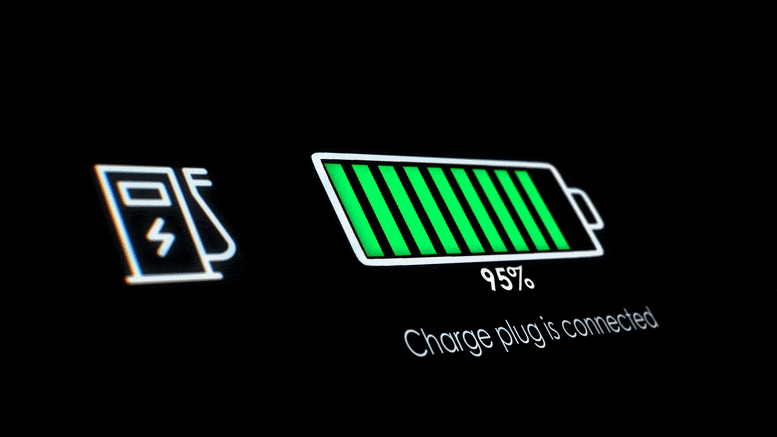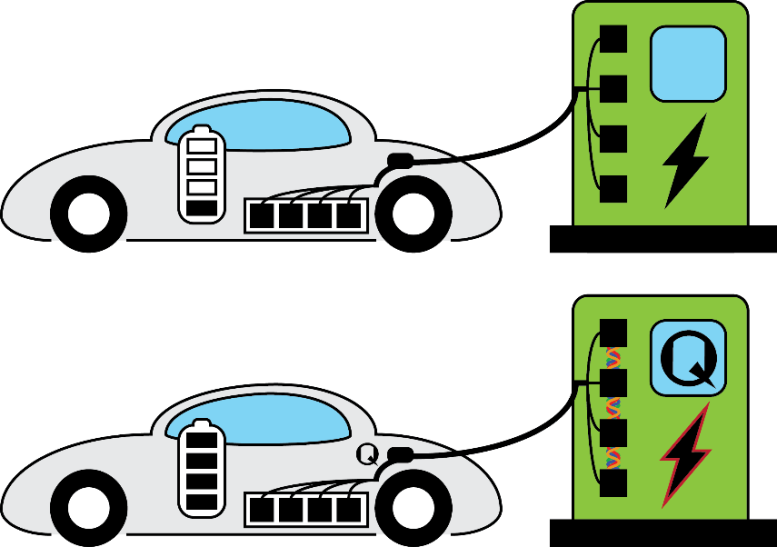
Quantum charging will minimize the charging time of electric powered autos from ten several hours to a few minutes.
Whether it is photovoltaics or fusion, faster or later, human civilization must turn to renewable energies. This is considered inevitable looking at the at any time-rising electrical power calls for of humanity and the finite mother nature of fossil fuels. As these types of, substantially study has been pursued in buy to produce alternative sources of power, most of which benefit from electrical energy as the primary strength provider. The substantial R&D in renewables has been accompanied by gradual societal variations as the world adopted new items and equipment managing on renewables. The most striking change as of recently is the quick adoption of electric cars. Though they were being rarely witnessed on the roads even 10 years ago, now thousands and thousands of electrical cars are becoming marketed each year. The electric car market is a person of the most swiftly increasing sectors, and it helped propel Elon Musk to turn out to be the wealthiest guy in the environment.
Compared with classic vehicles which derive electricity from the combustion of hydrocarbon fuels, electric powered motor vehicles count on batteries as the storage medium for their electricity. For a long time, batteries had considerably reduce electricity density than those people presented by hydrocarbons, which resulted in quite very low ranges of early electric vehicles. Having said that, gradual advancement in battery technologies at some point authorized the travel ranges of electric powered vehicles to be within just satisfactory amounts in comparison to gasoline-burning autos. It is no understatement that the advancement in battery storage know-how was a single of the most important complex bottlenecks which experienced to be solved in get to kickstart the existing electric motor vehicle revolution.

A pictorial illustration of today’s electrical car as opposed to the potential auto based on quantum battery systems. Utilizing quantum charging would lead to a 200 occasions speedup in a standard EV, which suggests that the charging time would be slash from 10 hours to about 3 minutes (at dwelling), or 30 minutes to 9 seconds at a charging station. Credit score: Institute for Simple Science
Nevertheless, even with the broad enhancements in battery technology, now customers of electrical vehicles deal with another issue – slow battery charging velocity. At this time, cars and trucks choose about 10 hours to completely recharge at residence. Even the fastest superchargers at the charging stations have to have up to 20-40 minutes to entirely recharge the vehicles. This makes more charges and inconvenience to the prospects.
To deal with this difficulty, researchers looked for responses in the mysterious field of quantum physics. Their search has led to the discovery that quantum systems might promise new mechanisms to cost batteries at a speedier amount. These types of thought of “quantum battery” has been to start with proposed in a seminal paper released by Alicki and Fannes in 2012. It was theorized that quantum assets, such as entanglement, can be applied to vastly velocity up the battery charging course of action by charging all cells in just the battery at the same time in a collective fashion.
This is specially enjoyable as present day large-capacity batteries can incorporate various cells. These kinds of collective charging is not attainable in classical batteries, in which the cells are billed in parallel independently of one particular one more. The benefit of this collective compared to parallel charging can be measured by the ratio referred to as the ‘quantum charging advantage’. Afterwards, all over the 12 months 2017, it was found that there can be two feasible resources powering this quantum benefit – specifically ‘global operation’ (in which all the cells converse to all other folks at the same time, i.e., “all sitting down at just one table”) and ‘all-to-all coupling’ (every single mobile can chat with every other, but a one mobile, i.e., “many discussions, but each individual discussion has only two participants”). Even so, it is unclear no matter whether each these sources are needed and irrespective of whether there are any restrictions to the charging speed that can be attained.
Lately, researchers from the Centre for Theoretical Physics of Elaborate Programs inside of the Institute for Simple Science (IBS) further more explored these inquiries. The paper, which was picked out as an “Editor’s Suggestion” in the journal Bodily Critique Letters, confirmed that all-to-all coupling is irrelevant in quantum batteries and that the existence of global operations is the only component in the quantum gain. The team went further to pinpoint the correct source of this advantage while ruling out any other choices and even presented an express way of developing this sort of batteries.
In addition, the group was equipped to specifically quantify how much charging speed can be obtained in this plan. Though the greatest charging pace raises linearly with the amount of cells in classical batteries, the review showed that quantum batteries using worldwide operation can reach quadratic scaling in charging speed. To illustrate this, we will think about a common electric powered auto with a battery that contains about 200 cells. Using this quantum charging would direct to a 200 occasions speedup over classical batteries, which signifies that at dwelling charging time would be slice from 10 hours to about 3 minutes. At superior-speed charging stations, the demand time would be lower from 30 minutes to mere seconds.
Scientists say that implications can be much-achieving and that the implications of quantum charging can go properly over and above electric powered cars and buyer electronics. For illustration, it could come across crucial makes use of in upcoming fusion ability vegetation, which require huge quantities of strength to be charged and discharged in an instant. Of study course, quantum systems are nonetheless in their infancy and there is a very long way to go prior to these approaches can be carried out in follow. Analysis conclusions these as these, nevertheless, build a promising path and can incentivize the funding agencies and corporations to additional devote in these technologies. If employed, it is considered that quantum batteries would totally revolutionize the way we use electricity and get us a phase closer to our sustainable future.
Reference: “Quantum Charging Gain Can’t Be Considerable With out Global Operations” 21 March 2022, Physical Review Letters.
